Councillor dubs Boston the ‘most racist city in the country’ and seeks millions in reparations to help black residents buy organic food at farmers’ markets
A Massachusetts city councilman has labeled Boston the “most racist city in the country” and called for a multimillion-dollar recovery package so black residents can improve their diets with organic food.
Julia Mejia, a Boston councilor-at-large, said the city had spent just $2.1 million to address the “historical trauma passed down from generation to generation” and that much more was needed.
During a speech at Harvard University, Mejia called for a $300,000 maternity hospital for “birthers” and payouts so that the descendants of slaves could buy organic syrup and other healthy products at farmers’ markets.
Reparations activists in Boston are demanding $15 million to repay Black residents for injustices against their slavery-era ancestors — an eye-popping sum that is nearly four times the city’s annual budget.
Councilwoman Julia Mejia told the Harvard University health panel that Black people are still struggling to get ahead
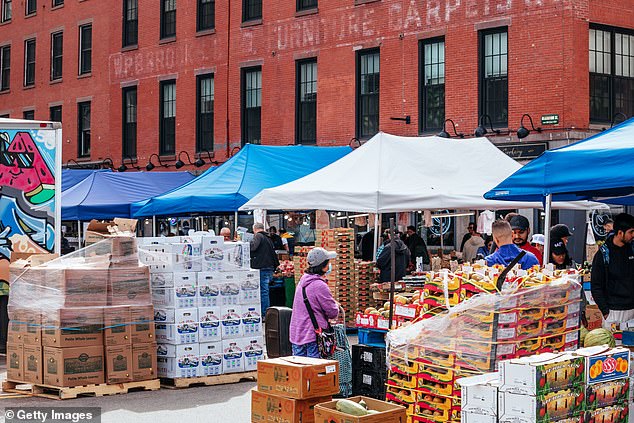
Black Boston residents live in ‘food deserts’ when they should be buying organic syrup from farmers markets, says
Payouts for descendants of slaves are a hot topic in America’s culture wars. Reparations are popular among blacks who will benefit, but not among the other groups who would have to bear the additional taxes.
Mejia, an “Afro-Latina” Dominican immigrant who graduated from Mount Ida College, says they are needed in Boston because it is the “most racist city in the country.”
She described how black Bostonians had struggled to purchase property, sent their children to “under-resourced schools” and endured “underinvestment in black neighborhoods.”
“The level of racism, segregation and trauma that exists here … has been passed down from generation to generation,” the Democrat said.
The funding agreed to so far — $500,000 to create the city’s reparations task force and $1.6 million for a commission on black men — was too little, she told the health panel in late March.
She is seeking “millions of dollars” in additional spending.
Part of it would address the “food deserts” that black Bostonians lived in, she said, where they can only shop at “local convenience stores … filled with processed foods.”
“We’re fortunate that we have farmers’ markets now,” Mejia said, selling products like “organic syrup.”
“Access to healthy food should also be part of the conversation,” she added.
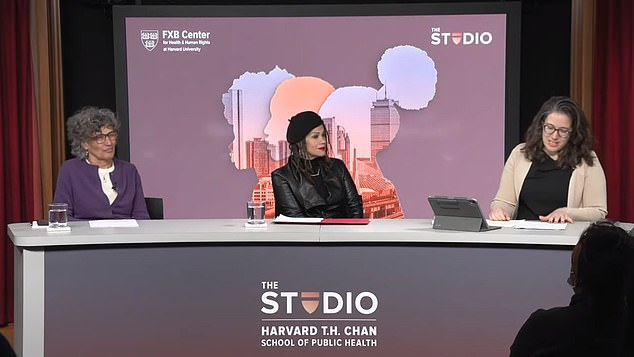
Mejia spoke on a Harvard University panel about how reparations can address health and wellness inequalities
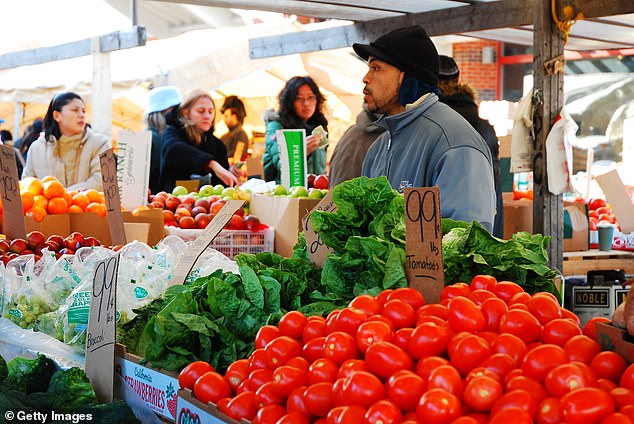
Self-described ‘Afro-Latina’ Julia Mejia says Black Bostonians have poor diets due to legacy of slavery
She also called for $300,000 to open a maternity center in the Roxbury neighborhood as a form of reparations to benefit “women or people in childbirth.”
“I think we just have to have the political will to move things forward,” she said
‘I have done more in my short tenure than most people who have been there for 20 years. It’s really about the urgency of this moment, and I think we’ve lost the moment where we fall victim to the narrative of how toxic it is.”
Mejia’s comments come as Boston activists are pushing the city for $15 billion in reparations for Black residents, fueling fears of a potential strain on resources due to cuts to police and veterans in this year’s budget.
The Rev. Kevin Peterson, of the Boston People’s Reparations Commission, launched the call in February, saying the city was “built on slavery” and should now “pay back” black residents.
The amount includes $5 billion in direct cash payments to black Bostonians, a $5 billion investment in new financial institutions and $5 billion to fight crime and improve schools for black children, the commission says.
Peterson is a leading racial justice activist in Massachusetts, including in the campaign last year to rename Faneuil Hall, a popular tourist site named after a wealthy merchant who owned and traded slaves.
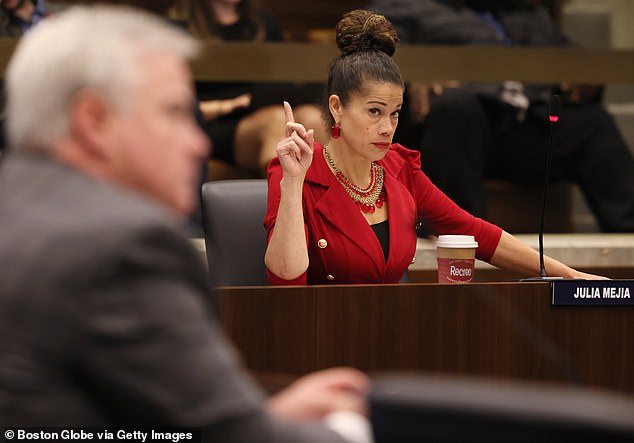
Mejia, a Democrat, says she has accomplished in a short time what other Boston council members took years to achieve
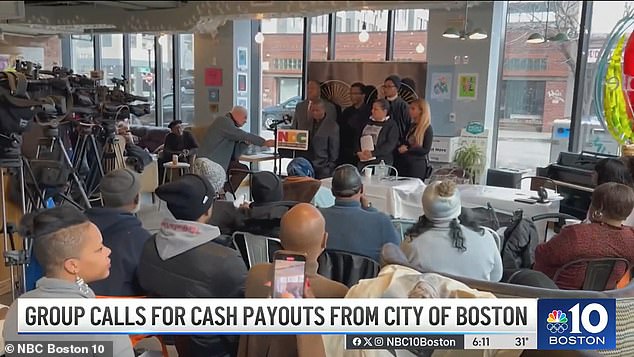
The self-appointed Boston People’s Reparations Commission wants $5 billion to flow directly into the pockets of black Bostonians
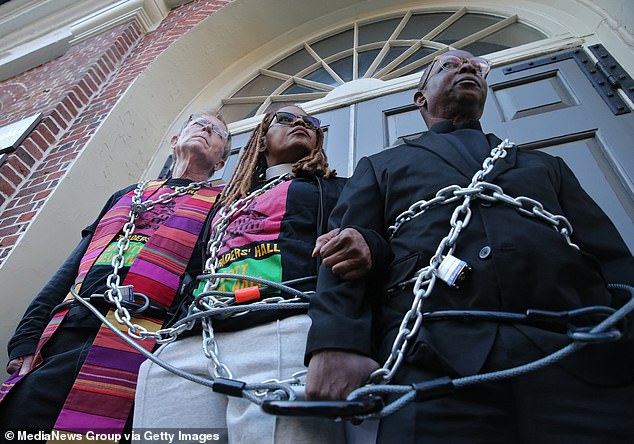
Reverend Peterson, right, made headlines with his attempt to rename Faneuil Hall, a popular tourist site named after a wealthy merchant who owned and traded slaves
He also wants Boston’s “white churches” to provide millions of dollars in reparations to the city’s black community.
Blacks make up about 22.5 percent of Boston’s 651 million residents, the U.S. Census Bureau says.
Reparations advocates say it’s time for America to pay back its Black residents for the injustices of the historic transatlantic slave trade, Jim Crow segregation and the inequities that persist to this day.
From there it gets tricky.
There is no agreed framework for what a settlement would look like. Ideas range from cash payouts to scholarships, land giveaways, business start-up loans, housing subsidies or statues and street names.
Critics say payouts to select black people will inevitably divide winners and losers and raise questions about why American Indians and others aren’t getting their own benefits.
Although popular among black Americans, the other groups that would have to pay the tax bill are less enthusiastic.
